Seeing I (Date TBC): For 24-hours a day, for 7-days, artist Mark Farid will wear a virtual reality headset, experiencing life through the eyes and ears of one person; hearing only what they hear and seeing only what they see for one week.
Inspired by Psychologist Philip Zimbardo’s ‘Stanford Prison Experiment’ (1971), Philosopher Jean Baudrillard’s ‘Simulacra and Simulation’ (1981), and Artist Josh Harris’ ‘Quiet: We Live in Public’ (1999), Seeing I will confine Farid to a gallery space, subject to the simulated life of the project’s Other. With no existing relationship to the Other, how will the constant stream of artificial sights and sounds start to displace Farid’s own internal monologue? For the duration of the project, Farid will experience no human interaction relative to his own life, allowing his indirect relationship with the Other to become his leading narrative.
Adapting the question of nature vs. nurture to the digital age, Seeing I will consider how large a portion of the individual is an inherent self, and how large a portion is a consequence of environment and culture. How will the 7-days alter Farid’s movement, mannerisms, personality, and most importantly, his rationale? Without free will to determine and shape who he is, will Farid’s consciousness be enough to deter significant change?
Seeing I was conceived and created by artist Mark Farid, is commissioned by arebyte Gallery (UK), and the European Media Art Platform's EMARE program at Werkleitz (DE), with the support of the Creative Europe Culture Programme of the European Union (EU), the National Theatre Immersive Storytelling Studio (UK), Body>Data>Space (UK), and the Sundance Institute (USA).
Seeing I: The Other, as part of the European Media Artist in Residency Exchange, 2020/21
Culminating an online residency with the the European Media Art Platform's program at Werkleitz, as part of the Creative Europe Culture Programme of the European Union, we screened the lives of three migrants, in first person point of view.
Screening 360° Video
Exhibition
The gallery space will contain all necessary facilities for the course of the 14-days: a double bed, bathroom, exercise bike, and a table and chair. This space will be open for audiences to visit onsite and online.
Farid will live inside this space, subjected to the sights and sounds coming from the headset; he will eat, drink and bath in sync with the Other, isolating him from any human interaction. Provided the headset remains on, Farid is free to do as he otherwise pleases. Farid will receive visual indications of the gallery’s physical space. This will enable Farid to independently navigate his way around the room to the bed, bathroom and exercise bike.
Audiences will be invited to share Farid’s virtual life (the recorded life of the Other) in real time, on VR headsets, whilst also witnessing Farid’s independent reactions first-hand.
Exhibition
The gallery space will contain all necessary facilities for the course of the 7-days: a double bed, bathroom, exercise bike, and a table and chair. This space will be open for audiences to visit onsite and online.
Farid will live inside this space, subjected to the sights and sounds coming from the headset; he will eat, drink and bath in sync with the Other, isolating him from any human interaction. Provided the headset remains on, Farid is free to do as he otherwise pleases. Farid will receive visual indications of the gallery’s physical space. This will enable Farid to independently navigate his way around the room to the bed, bathroom and exercise bike.
Audiences will be invited to share Farid’s virtual life (the recorded life of the Other) in real time, on VR headsets, whilst also witnessing Farid’s independent reactions first-hand.
Exhibition Concept
We take for granted that the 21st Century is domesticated. Mechanically and physically, our audio-sensory experiences have been engineered; from the creak of a floorboard, to church-bells ringing, to an engine revving. We look out of our windows and see square gardens; beyond our hedges, humans have built every building, road, park and field. None exist without man.
We comprehend and shape the world in our own, distinct image - an image formed by environmental, cultural and genetic factors. To alter these variables subsequently reshape the individual, and how they comprehend the world. Just as humans’ impact on the environment adjusts the weather, we have grown accustomed to an artificial reality, cultivated and curated to the needs of man.
Our sensations and awareness of our surroundings are substituted by a fictional simulation; having known nothing else, we believe this fiction to be truth. At this point, simulation becomes life. Assuming that the physical world is the 'real' world, we submerse and surrender ourselves to manufactured sensory input; standing in Plato’s cave, facing the walls and naming shadows, oblivious to the fire outside.
Exhibition Concept
We take for granted that the 21st Century is domesticated. Mechanically and physically, our audio-sensory experiences have been engineered; from the creak of a floorboard, to church-bells ringing, to an engine revving. We look out of our windows and see square gardens; beyond our hedges, humans have built every building, road, park and field. None exist without man.
We comprehend and shape the world in our own, distinct image - an image formed by environmental, cultural and genetic factors. To alter these variables subsequently reshape the individual, and how they comprehend the world. Just as humans’ impact on the environment adjusts the weather, we have grown accustomed to an artificial reality, cultivated and curated to the needs of man.
Our sensations and awareness of our surroundings are substituted by a fictional simulation; having known nothing else, we believe this fiction to be truth. At this point, simulation becomes life. Assuming that the physical world is the 'real' world, we submerse and surrender ourselves to manufactured sensory input; standing in Plato’s cave, facing the walls and naming shadows, oblivious to the fire outside.
The Other
Wearing a pair of glasses fitted with miniature camera lenses and microphones, the Other will broadcast a continuous 24-hours a day, 7-days, 360° HD panorama of all their immediate sights and sounds. This will be streamed online, in the gallery, and directly to Farid’s VR headset, who will witness every waking moment of the Other’s life: from brushing their teeth, to their commute, their work and social life, and their most intimate moments with their partner, family, and friends.
We are currently in the process of trialling different Other’s. Please see the Ars Electronica Digital Arts Festival, and the European Media Art Platform's pages on this website for more information.
If you are interested in recording your life for a 24 hours trial, please get in contact with us.
The Other
Wearing a pair of glasses fitted with miniature camera lenses and microphones, the Other will broadcast a continuous 24-hour a days, 7 days, 360° HD panorama of all their immediate sights and sounds. This will be streamed online, in the gallery, and directly to Farid’s VR headset, who will witness every waking moment of the Other’s life: from brushing their teeth, to their commute, their work and social life, and their most intimate moments with their partner, family, and friends.
We are currently in the process of trialling different Other’s. Please see the Ars Electronica Digital Arts Festival, and the European Media Art Platform's pages on this website for more information.
If you are interested in recording your life for a 24 hours trial, please get in contact with us.
The Other Concept
Privacy allows one to live without the fear of social reprisal, living instinctively and protecting the self-validation innate to individuality. But with the Other’s identity, behaviours and actions made public, and lived by an absent but all-seeing stranger (Farid, and the public), Seeing I will tackle the dichotomy of our contemporary lives, in which we are both willing spectator and spectacle.
Just as a film invites us to passively share in its protagonist’s life, Farid will peer into the life of the Other. Unlike a filmmaker, the Other will lack the authority to edit or re-film their recording. Will the Other start to self-censor their actions or perform, despite the clear instructions to live their life as normal? How will the 24-hour a day surveillance affect their relationship with others?
When every moment of an individual’s life is auto-publicised, with no thought given to the concept of privacy, it follows that there will be an indelible effect on the human psyche, subconsciously adapting to being watched - but - will the Other and their partner be happier broadcasting their life, validating their every decision through the potential that all is being acknowledged, or, will the lack of privacy become too much?
The Other Concept
Privacy allows one to live without the fear of social reprisal, living instinctively and protecting the self-validation innate to individuality. But with the Other’s identity, behaviours and actions made public, and lived by an absent but all-seeing stranger (Farid, and the public), Seeing I will tackle the dichotomy of our contemporary lives, in which we are both willing spectator and spectacle.
Just as a film invites us to passively share in its protagonist’s life, Farid will peer into the life of the Other. Unlike a filmmaker, the Other will lack the authority to edit or re-film their recording. Will the Other start to self-censor their actions or perform, despite the clear instructions to live their life as normal? How will the 24-hour a day surveillance affect their relationship with others?
When every moment of an individual’s life is auto-publicised, with no thought given to the concept of privacy, it follows that there will be an indelible effect on the human psyche, subconsciously adapting to being watched - but - will the Other and their partner be happier broadcasting their life, validating their every decision through the potential that all is being acknowledged, or, will the lack of privacy become too much?
Research
Seeing I is open to research partners and individuals. Please get in contact if you are interested in conducting research or contributing to this project.
We are currently working with Clinical Psychologist and Neuroscientist Dr. Mavi Sanchez, co-Director of Experimental Virtual Environments in Neuroscience and Technology, and Adjunct Professor at the Dept. of Basic Psychology, University of Barcelona.
Both Farid and the Other’s long-term mental and physical health are imperative. We have sought, and will continue to seek advice from a range of experts regarding the physical, and psychological effects for both Farid and the Other. These experts include but are not limited to cognitive behavioural therapists, neuroscientists, psychologists, ophthalmologist, and psychiatrists.
Seeing I is not an endurance test, and if Dr. Sanchez feels Farid should take the headset off, a discussion with Farid - through the headset - will take place, and we will act accordingly. Farid will not have the ability to make this decision himself. Farid will wear a bio sense harness, which will be record his heart rate, galvanic skin response, breathing, body and environmental temperature and humidity, and his movements.
Seeing I will culminate in a documentary focusing on the project’s implications: the effect of new technologies and surveillance – both social and political – on ideas of the self, and the influence of society on the individual.
Research
Seeing I is open to research partners and individuals. Please get in contact if you are interested in conducting research or contributing to this project.
We are currently working with Clinical Psychologist and Neuroscientist Dr. Mavi Sanchez, co-Director of Experimental Virtual Environments in Neuroscience and Technology, and Adjunct Professor at the Dept. of Basic Psychology, University of Barcelona.
Both Farid and the Other’s long-term mental and physical health are imperative. We have sought, and will continue to seek advice from a range of experts regarding the physical, and psychological effects for both Farid and the Other. These experts include but are not limited to cognitive behavioural therapists, neuroscientists, psychologists, ophthalmologist, and psychiatrists.
Seeing I is not an endurance test, and if Dr. Sanchez feels Farid should take the headset off, a discussion with Farid - through the headset - will take place, and we will act accordingly. Farid will not have the ability to make this decision himself. Farid will wear a bio sense harness, which will be record his heart rate, galvanic skin response, breathing, body and environmental temperature and humidity, and his movements.
Seeing I will culminate in a documentary focusing on the project’s implications: the effect of new technologies and surveillance – both social and political – on ideas of the self, and the influence of society on the individual.
Seeing I: Pilot, at Ars Electronica Digital Arts Festival, 2nd - 8th September 2019
Culminating a residency at Ars Electroinca Digital Arts Festival; for seven consecutive days, artist Mark Farid wore a VR headset for nine continuous hours each day, subject to the sights and sounds of a different person each day.
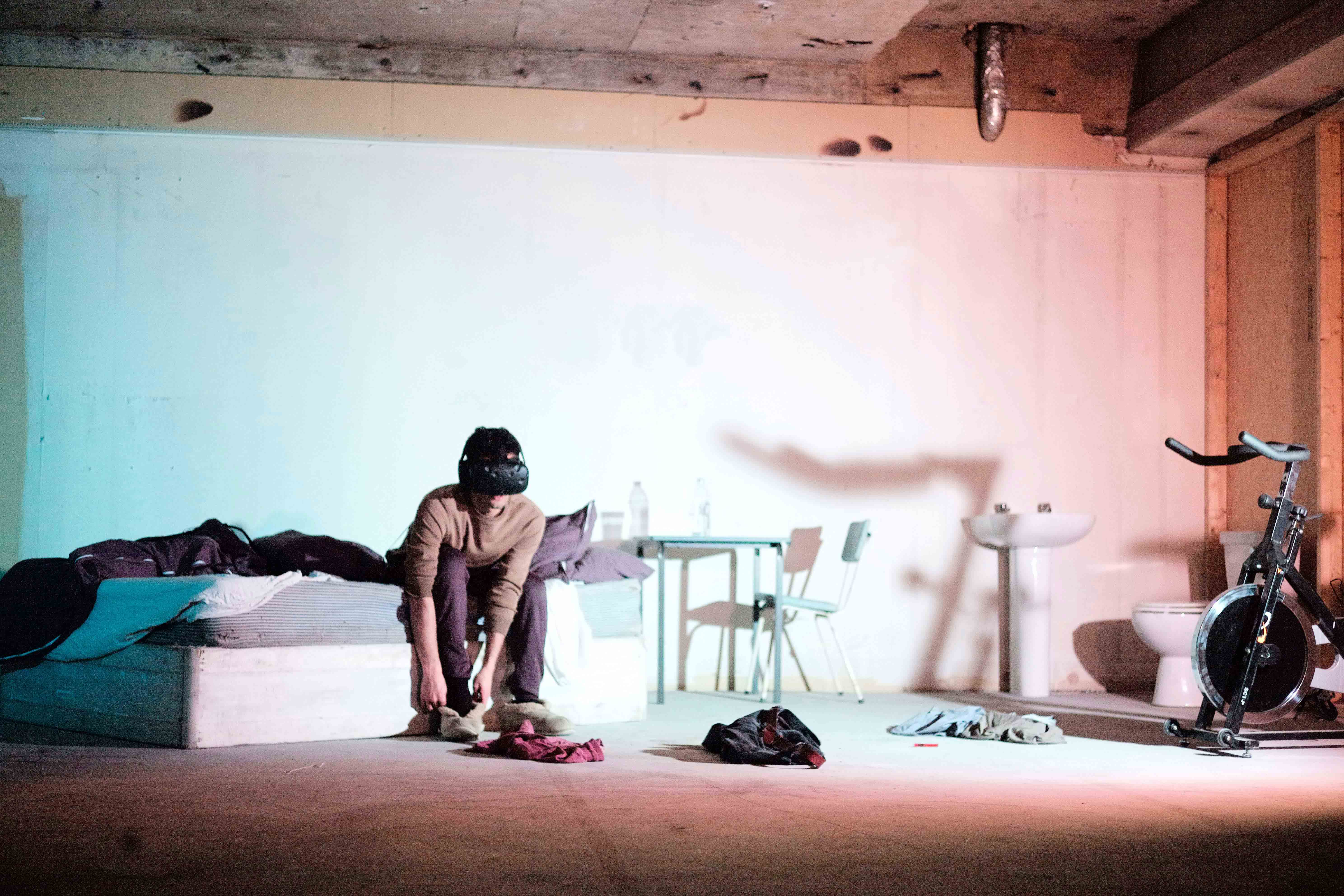
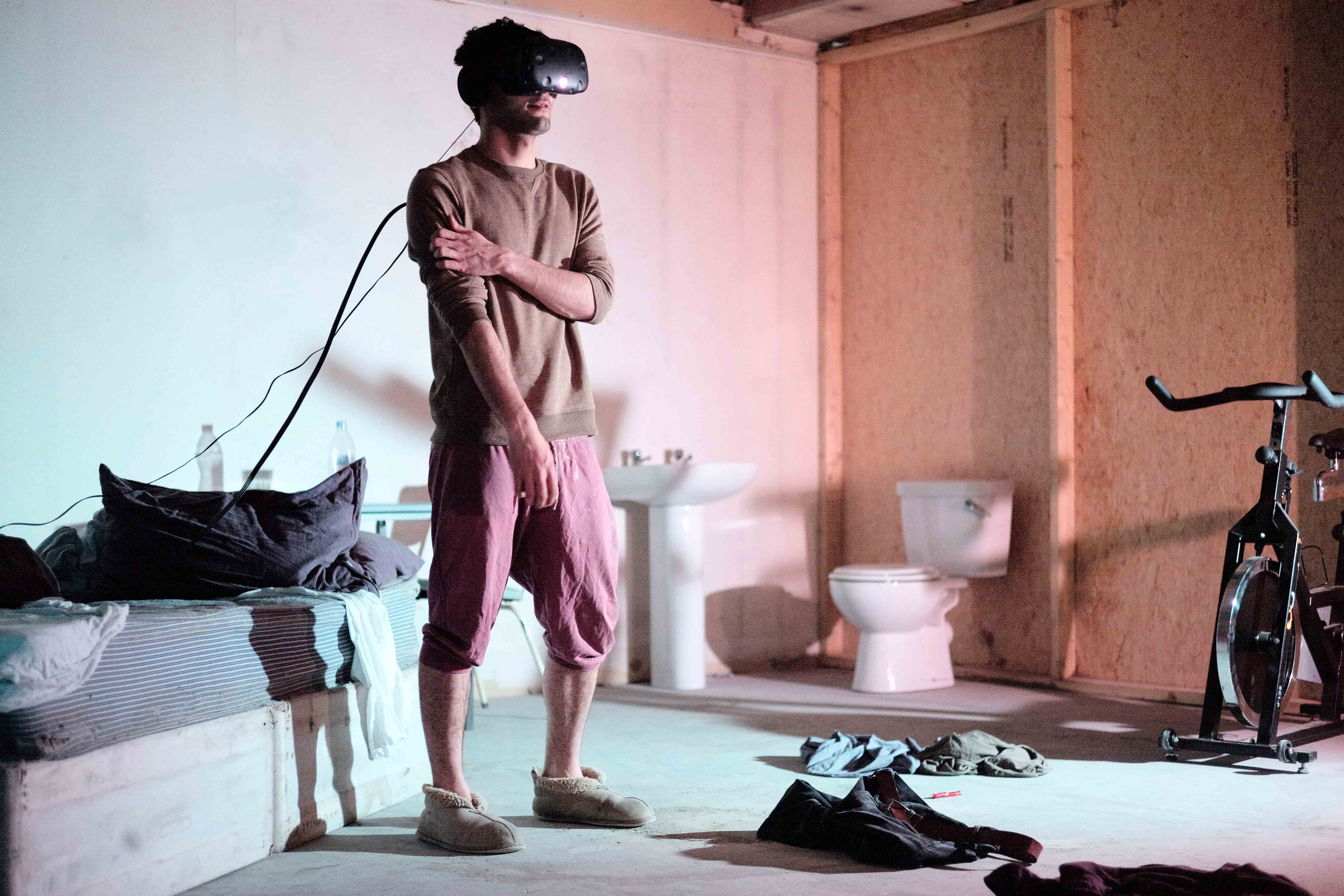
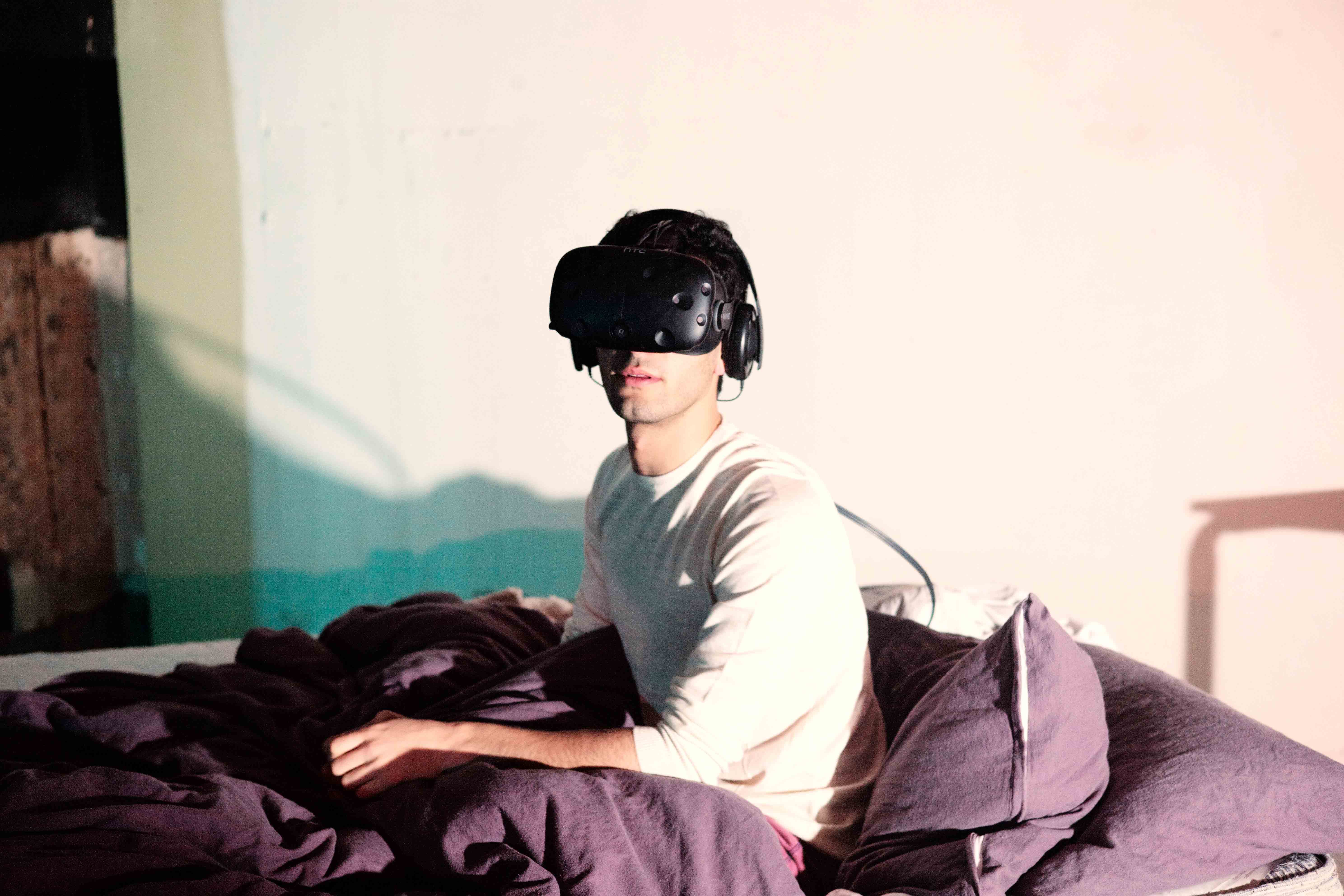
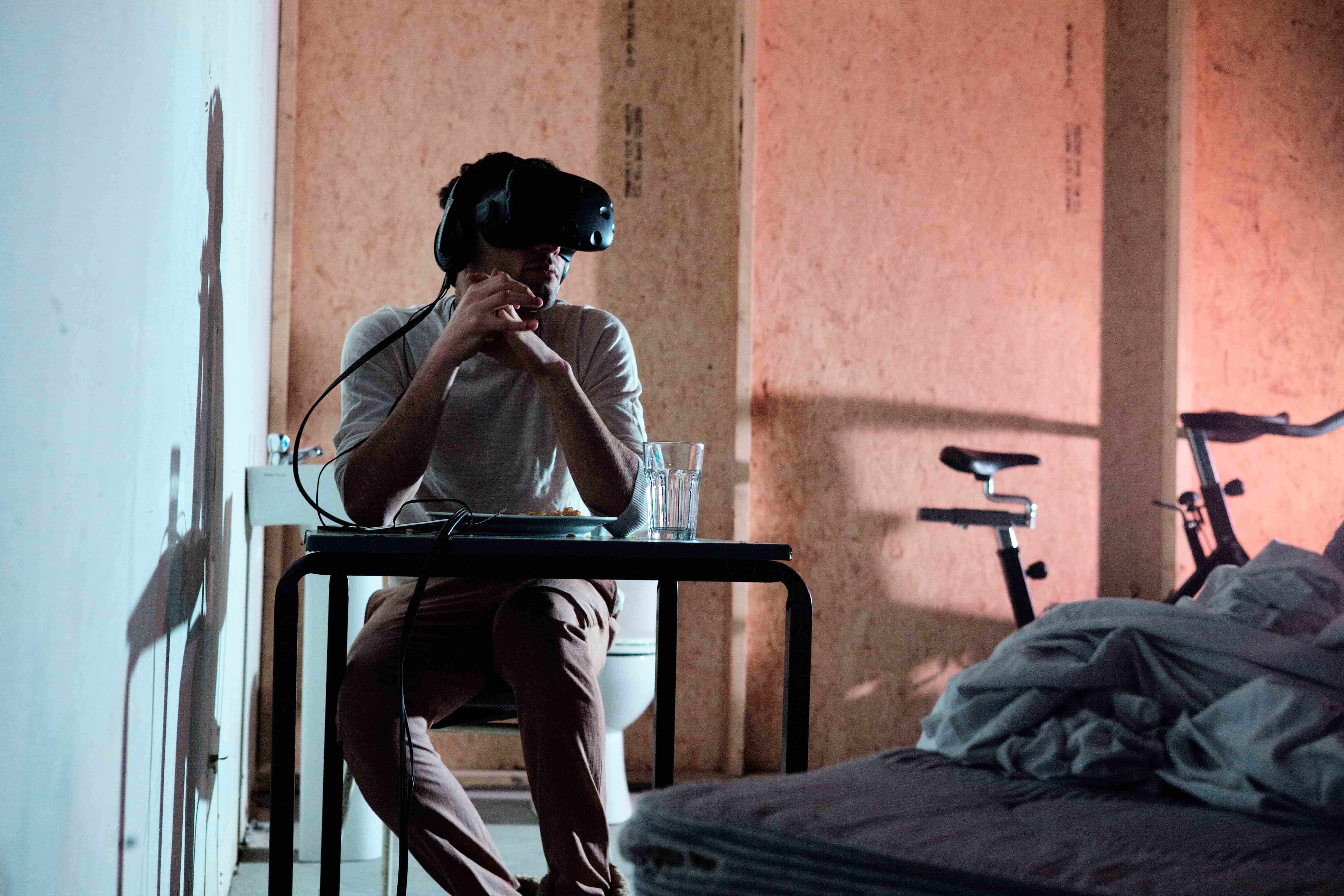
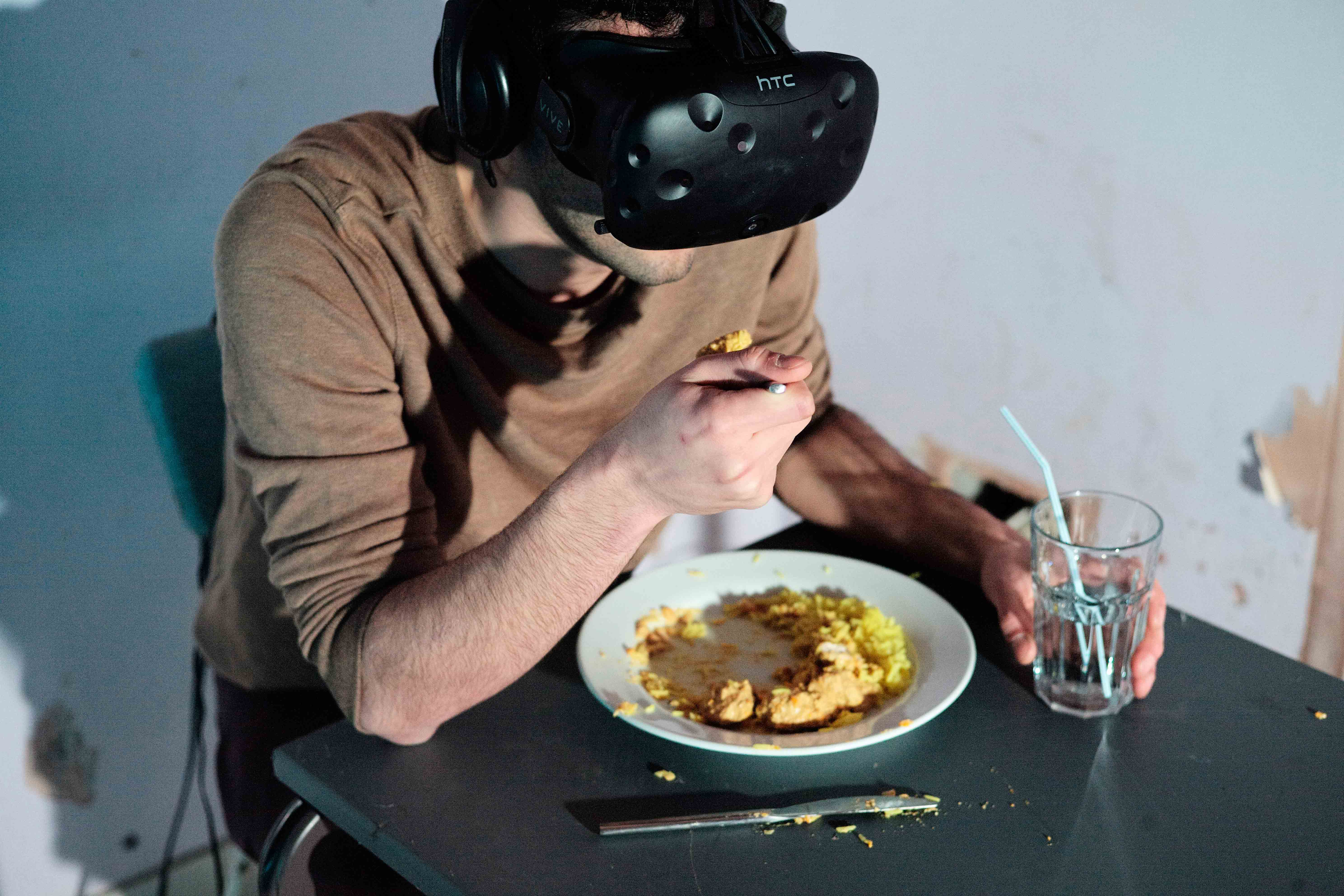
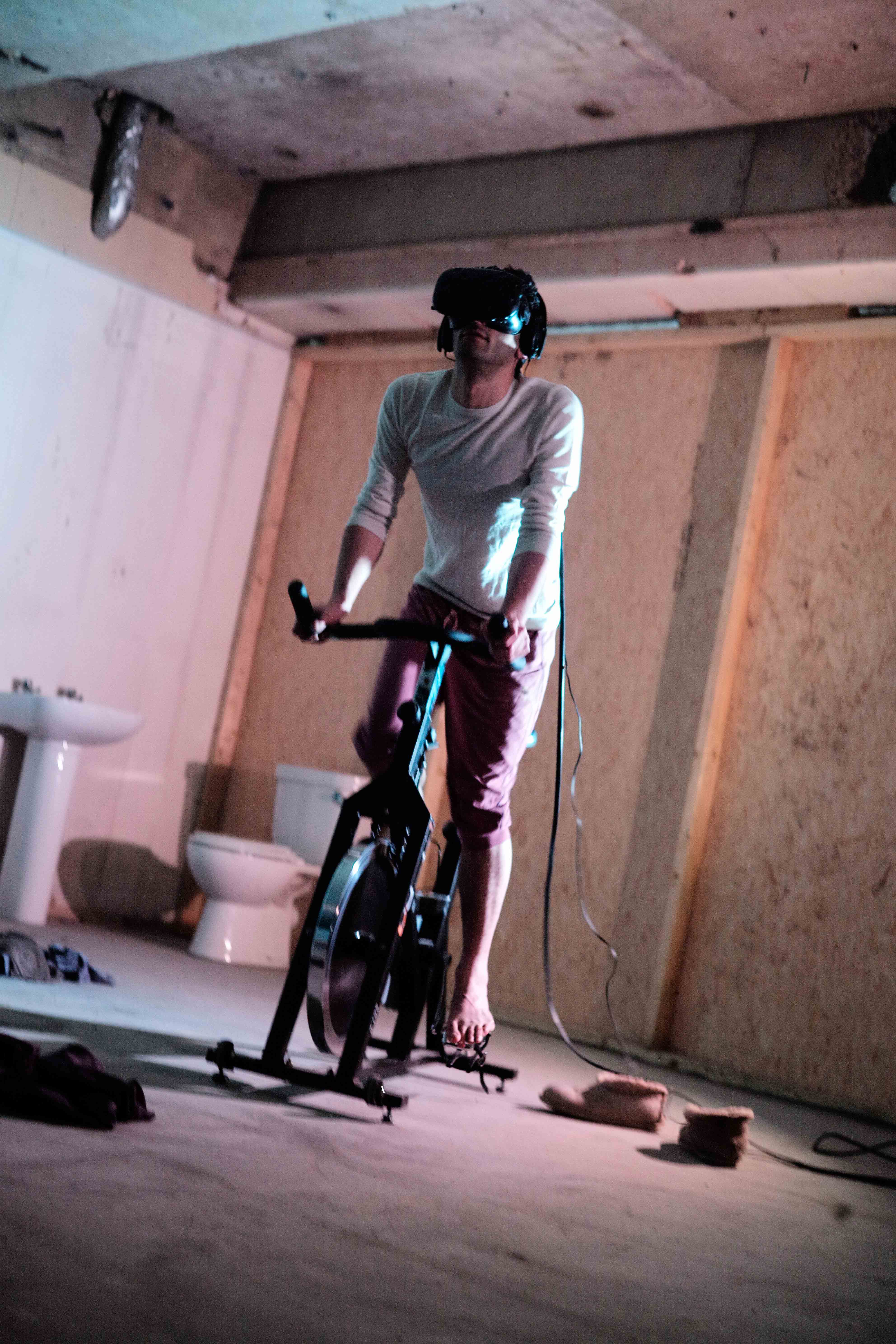
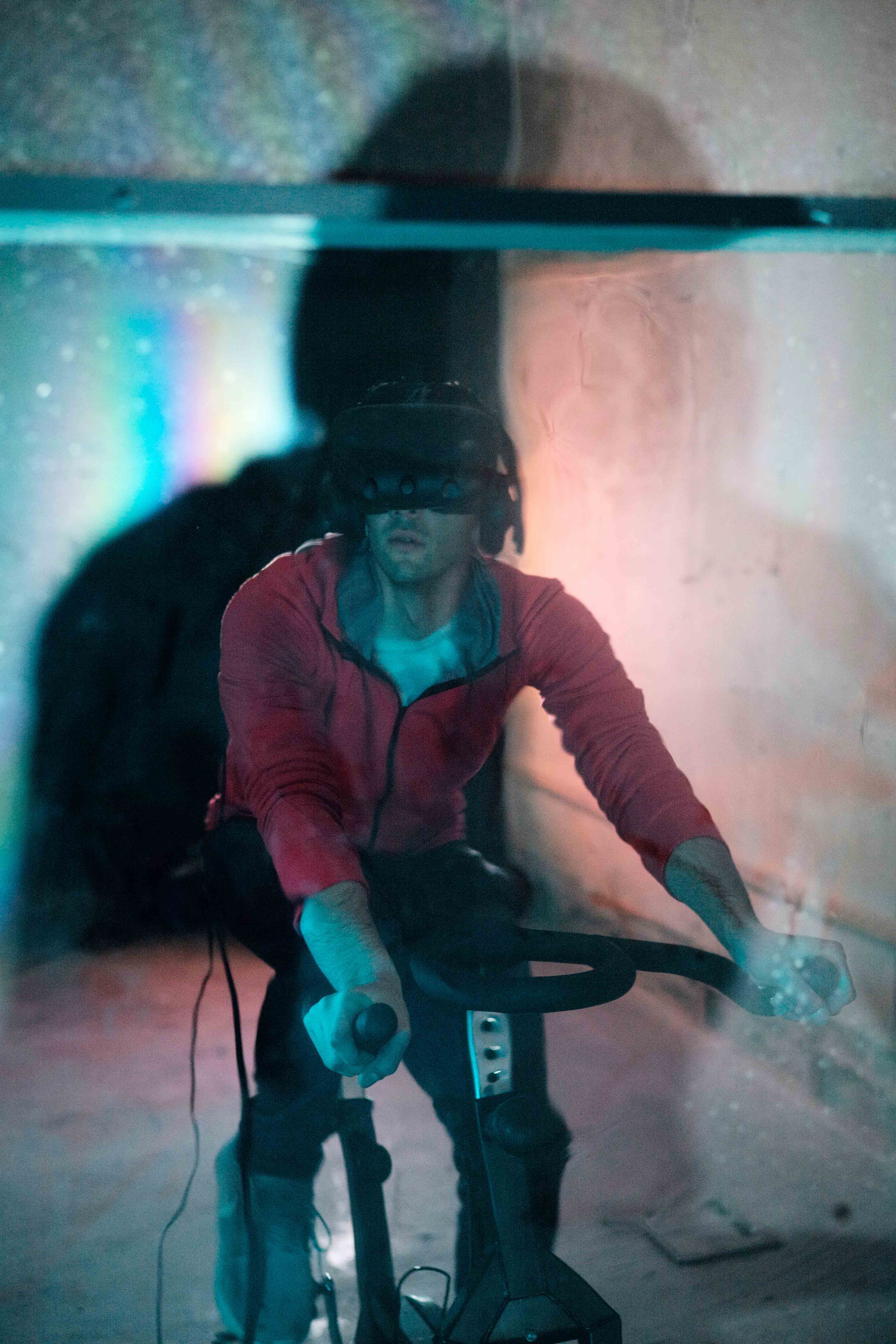
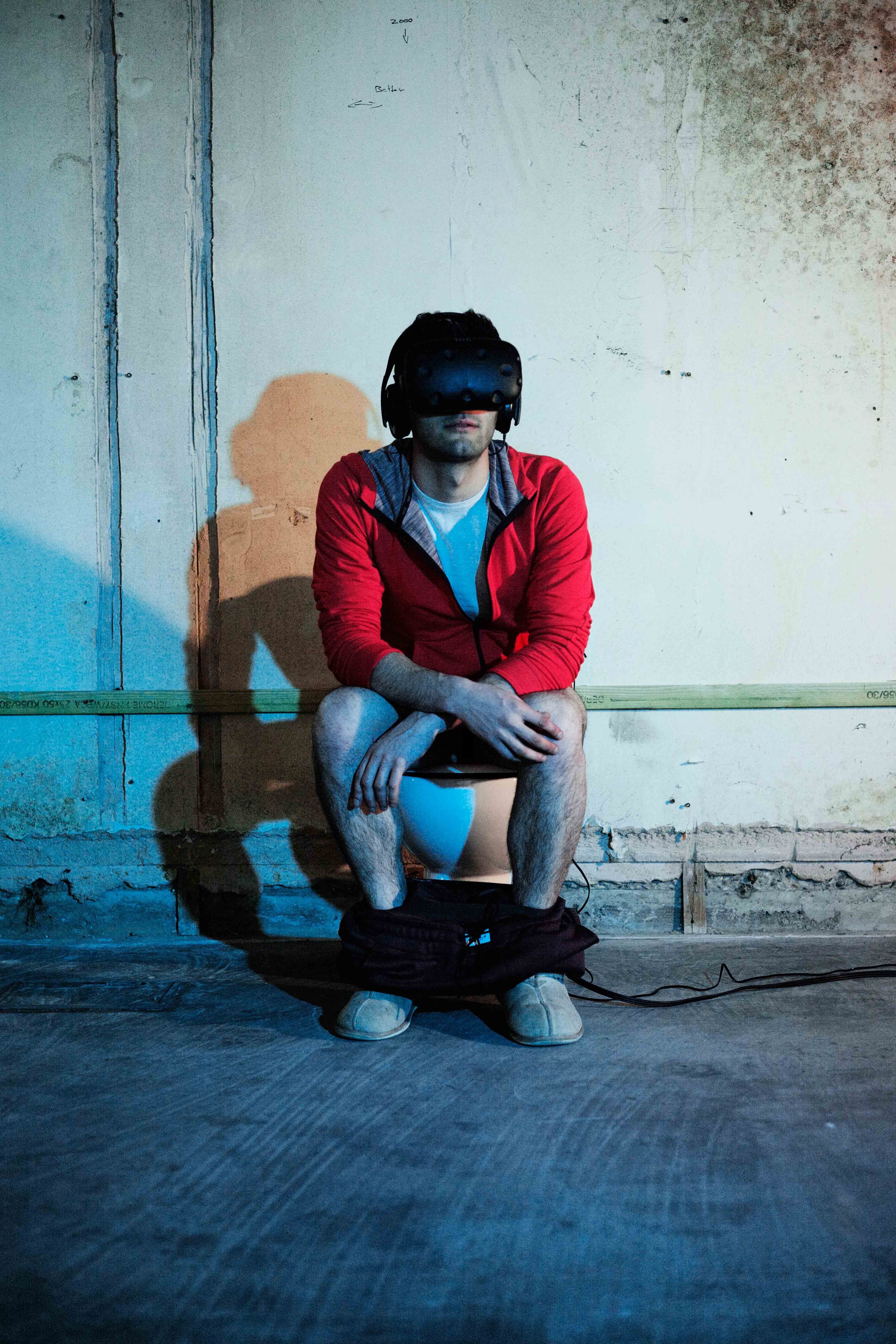
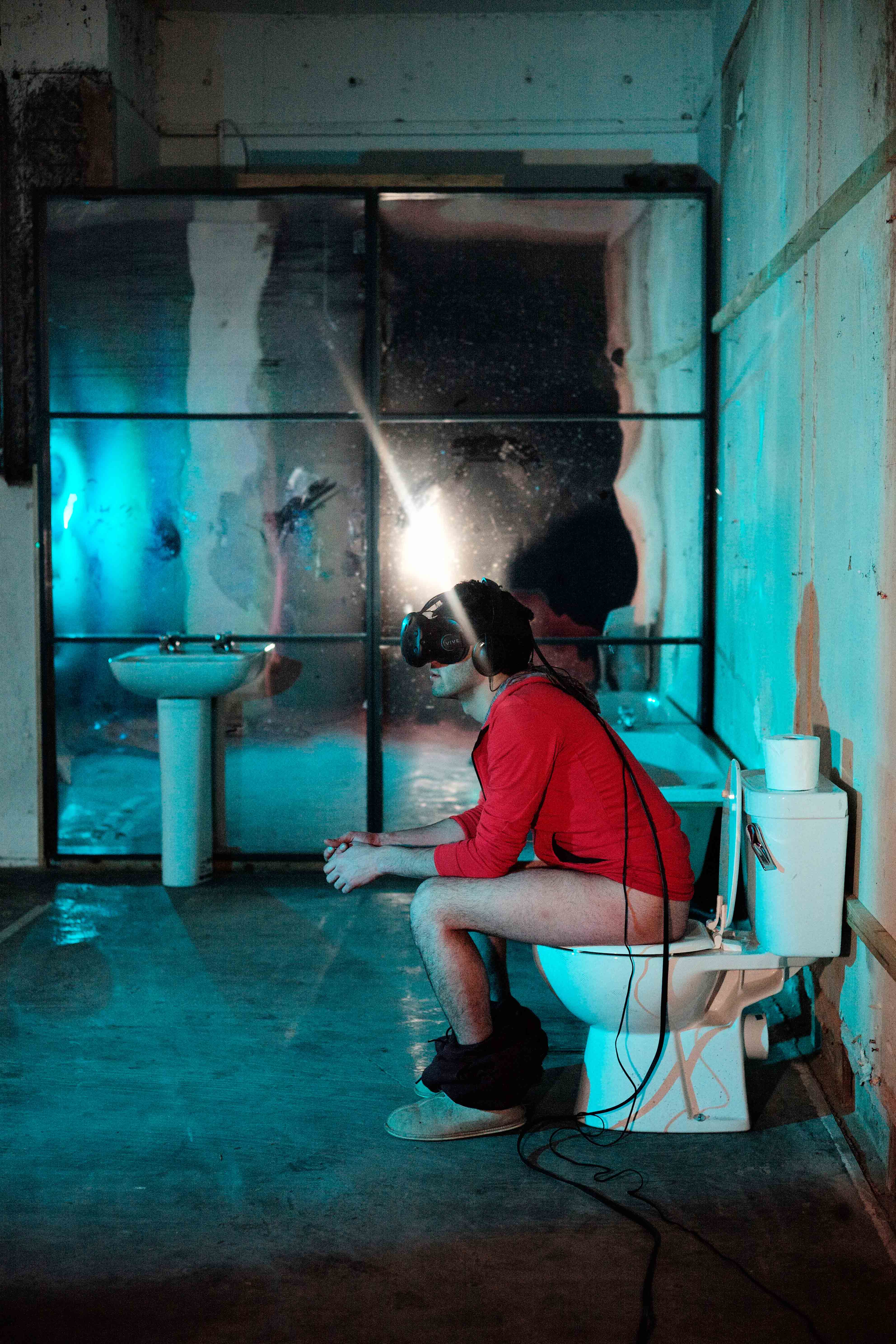
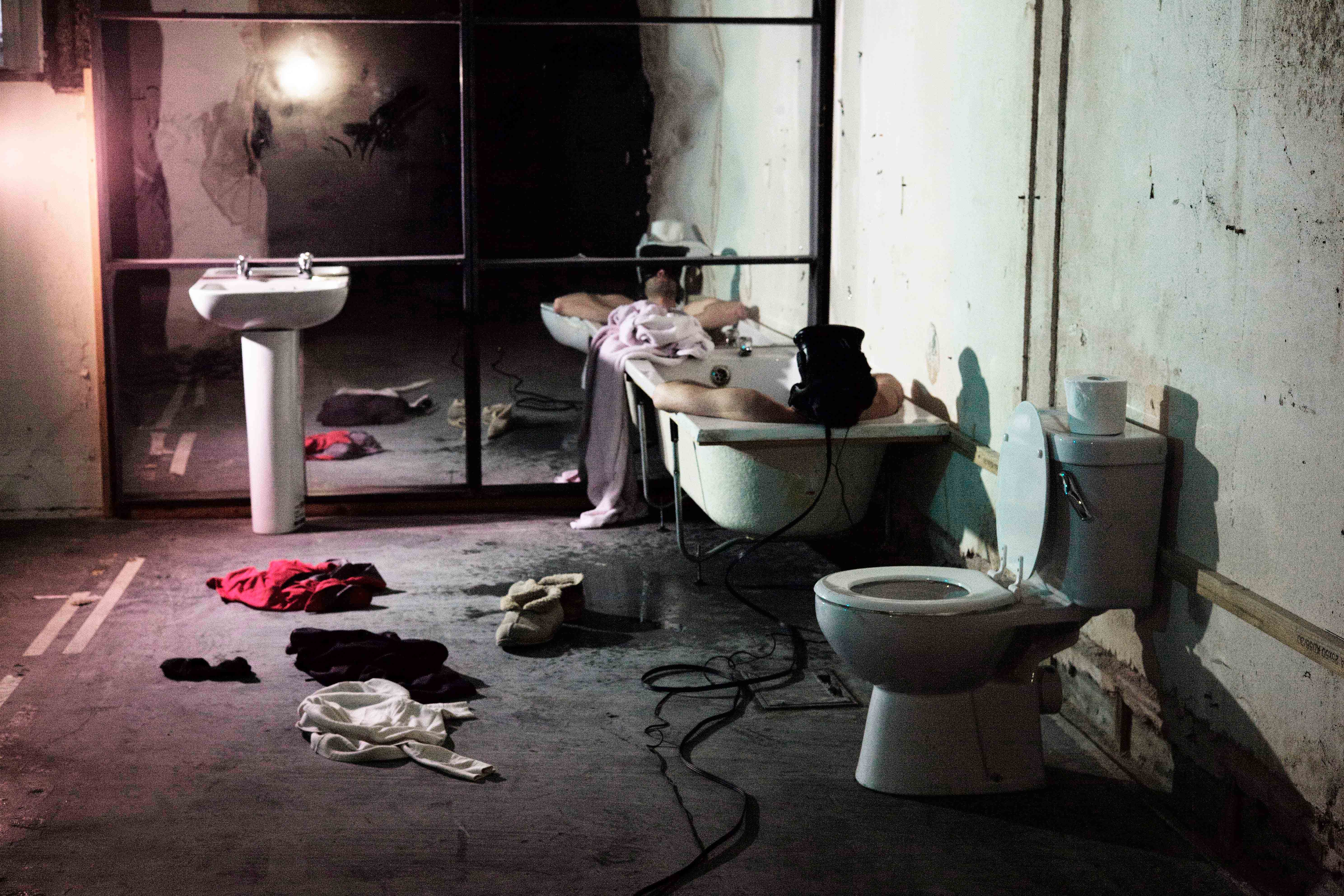
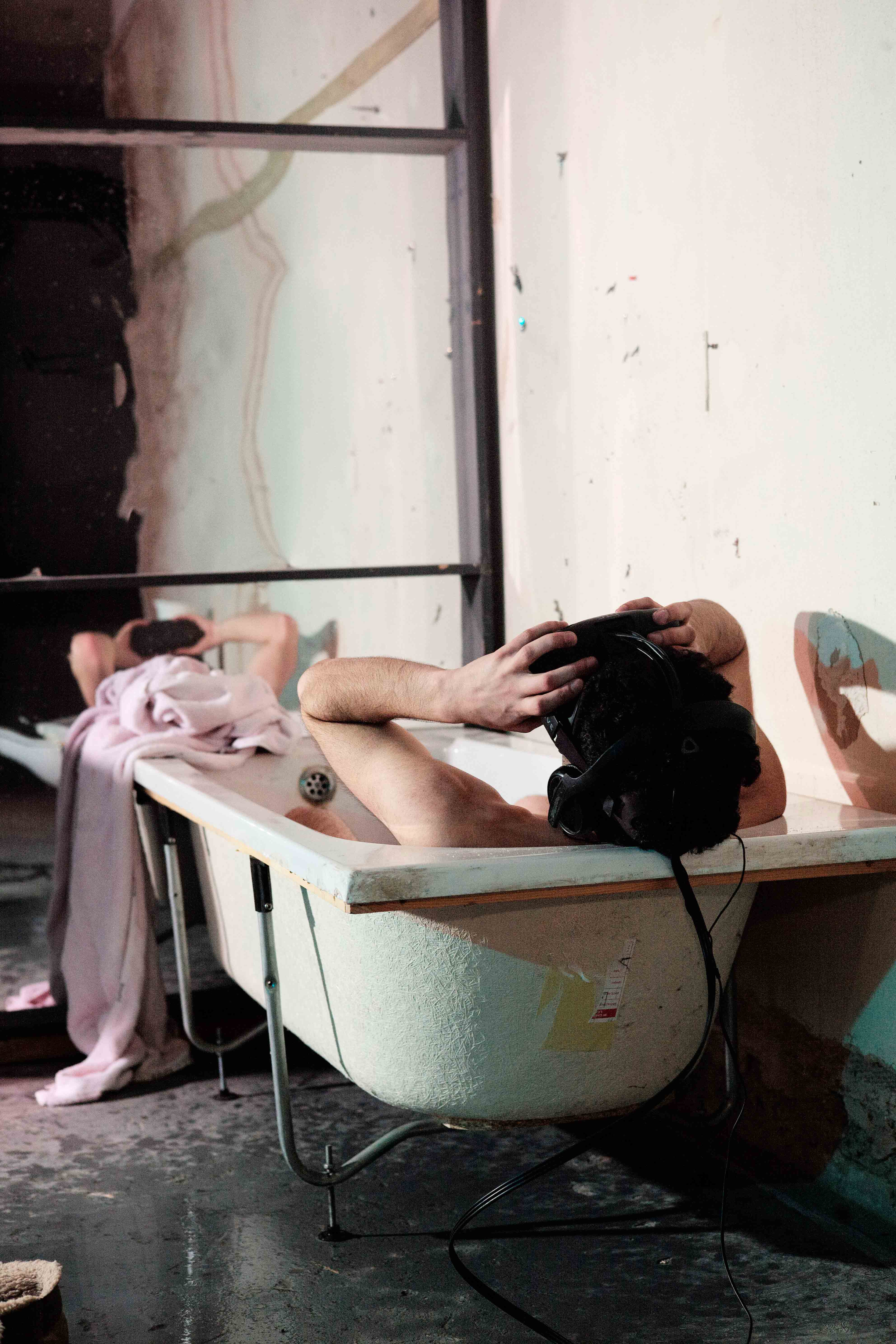
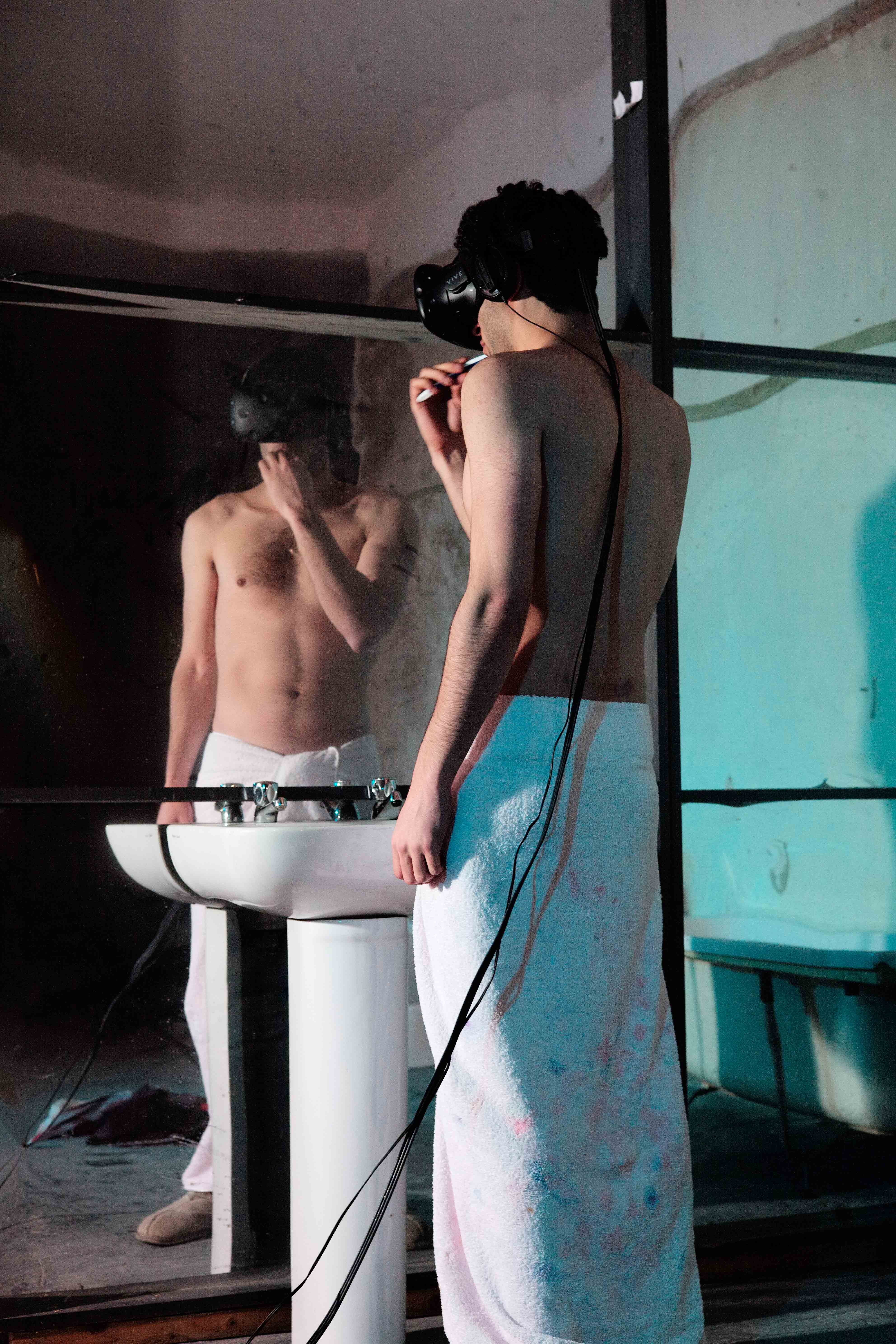
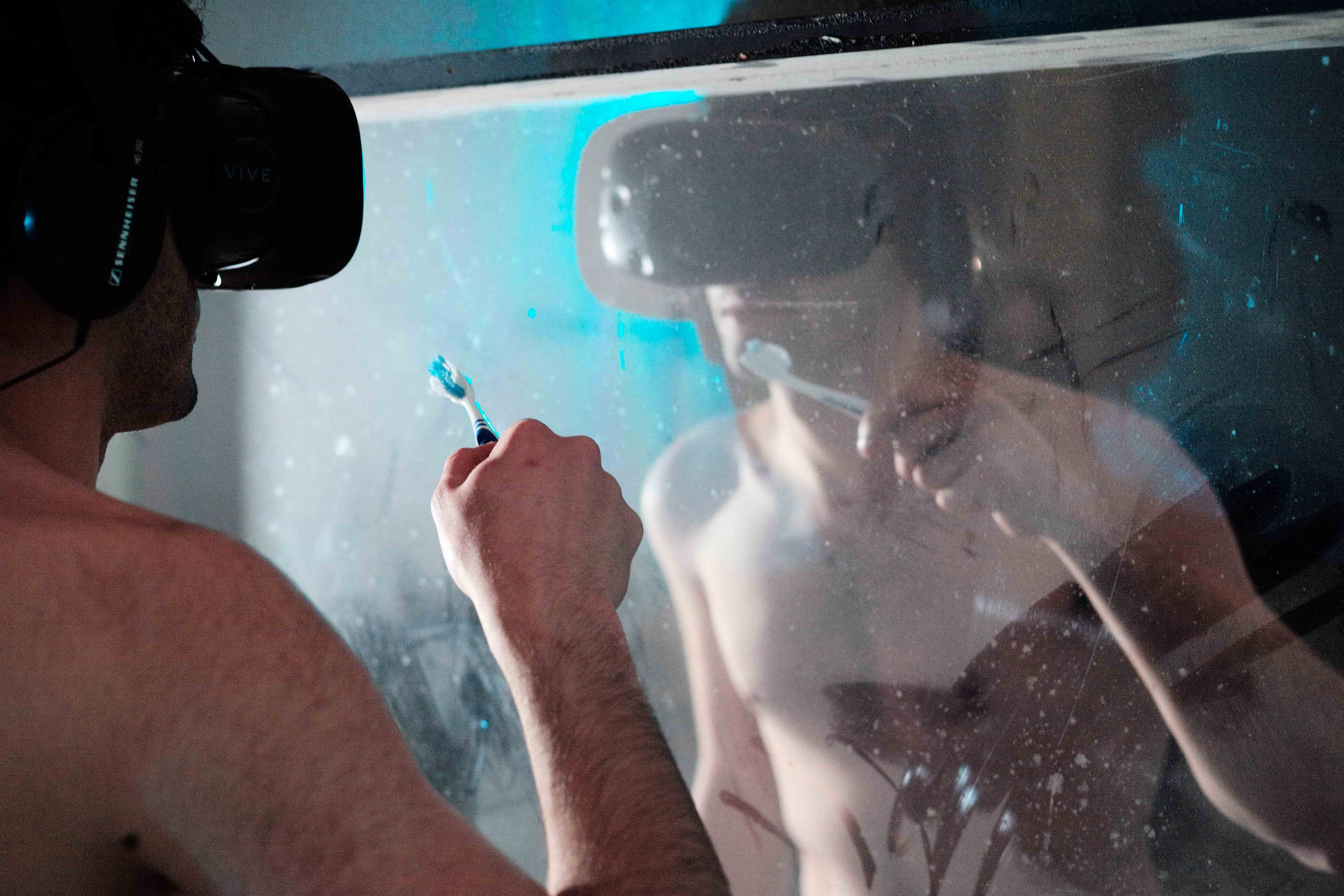
Experts and Media
Professor Simon Baron-Cohen, Developmental Psychopathology, University of Cambridge
“Seeing I is an extraordinary social psychology single-case study, an experiment in which for one month Mark sees the world only through other people’s eyes. All this is possible through new technology. One might imagine various outcomes of this experiment: that he might become more empathic, being other- rather than self-focused; that he might experience distorted perceptions and even delusions, given that his own brain is not receiving its normal input but instead is experiencing a kind of sensory deprivation; or that he might establish that the brain can in fact adapt relatively quickly (hours or days?) to a new reality, and then adapt back again at the end of the experiment, with no serious side- effects.
Professor Simon Baron-Cohen, Developmental Psychopathology, University of Cambridge
Whatever the result, the project will be ground-breaking and give rise to a raft of new hypotheses and methodologies for social psychology to explore more systematically and in larger samples. I am reassured that Mark has taken sensible precautions in case there are side- effects, and one hopes if these occur that they are temporary and reversible. The ethical issues are important, and at a minimum the fact that the experimenter is also the consenting participant makes this more ethical.
The project will take us on a journey in the tradition of Timothy Leary and Aldous Huxley, experimenting on one’s own perception through a manipulation, in this case not pharmacological, but technological."
Artist Gilad Raman, Israeli Pavilion, 55th Venice Biennale (2013)
“One of many aspects of this project that really interests me, is the connection between the reality which is being experienced by Mark and the Other. If I was able to create an identical situation for Mark within the Gallery: temperature, touch, smell, it would be a bad piece of work, because what is happening is exactly linear. What we call Mark right now, is trying to find itself, and this is exactly between the real space and time we are in; everything else is projected into his mind. This must be in collision, and once it is, then we will have something very interesting. Here, as an image and as a situation, any attempt to put Mark into the exact situation where temperature, smell, touch etc. are the same as the Other’s, makes this a boring scientific experiment, but where it becomes Art, is because of the creation of this friction and discontinuity."
Professor Barbara Sahakian, Clinical Neuropsychology, University of Cambridge. Research Council Wellcome Trust: Behavioural & Clinical Neuroscience Institute
“My initial thoughts are that it is an extremely interesting project and raises a number of important topical issues about society and our human interactions with technology. It also raises ethical issues, including of personhood and what the effects of reality distortion are on the brain and psychological processes. I found the description of the project fascinating and very thoughtfully and creatively conceived.
I am however concerned about how such a long project which involves voyeurism on the part of Mark and also on the part of the public in regard to Mark will affect his mental health and wellbeing. It could be extremely disturbing and it is unclear whether any potential damage to Mark’s mental health could be repaired. I would recommend a short trial of the project to get an understanding of possible problems that may arise and what kinds of psychological difficulties might be experienced so that these can be monitored carefully in the longer project."
Professor Simon Baron-Cohen, Developmental Psychopathology, University of Cambridge
“Whatever the result of Seeing I, the documentary will be ground-breaking and give rise to a raft of new hypotheses and methodologies for social psychology to explore more systematically and in larger samples. I am reassured that Mark has taken sensible precautions in case there are side-effects, and one hopes if these occur that they are temporary and reversible. The ethical issues are important, and at a minimum the fact that the experimenter is also the consenting participant makes this more ethical. The documentary will take us on a journey in the tradition of Timothy Leary and Aldous Huxley, experimenting on one's own perception through a manipulation, in this case not pharmacological but technological."
Mark Farid talking about Seeing I
Times Radio: Michael Portillo interviewing artist Mark Farid. October 2020
Impakt Festival. November 2019
Team, Funders, Partners and Supporters
Funders
Arebyte Gallery, UK
European Media Art Platform's program at Werkleitz, and the Creative Europe Culture Programme of the European Union, EU
Imagine Science Films, in partnership with New York University, Abu Dhabi, USA
Current Team
Mark Farid Artist, Producer, and Subject
Toby Coffey Producer and Consultant
Dr. Mavi Sanchez Clinical Psychologist and Neuroscientist
Ghislaine Boddington Dramaturg
Supporters
National Theatre Immersive Storytelling Studio, UK
Body>Data>Space, UK
The Sundance Institute, USA
With Special Thanks To
Gallery Director Nimrod Vardi
Filmmaker John Ingle
Producer Tadej Vindis
The Mindfulness Centre of Excellence, UK
Ravensbourne University, UK






